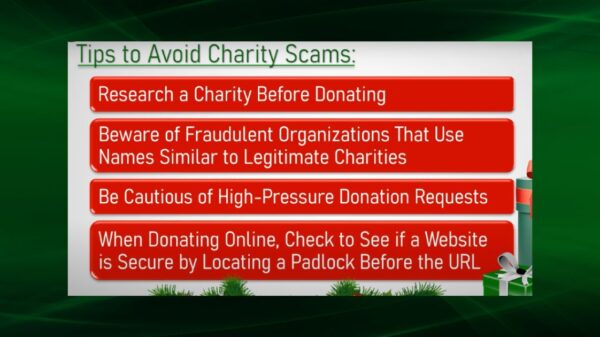On Tuesday, Florida Attorney General Ashley Moody warned taxpayers of a new COVID-19 related text scam that deceives recipients into disclosing personal banking information in order to receive a $1,200 stimulus check.
This latest scam impersonates the Internal Revenue Service (IRS). The Attorney General’s Office offered a reminder to taxpayers that the federal government and state agencies will never require personal banking information to be disclosed via text message to receive stimulus payments.
“As long as COVID-19 remains a threat, scammers will attempt every trick in the book to exploit taxpayers and coerce them into disclosing personal information. I encourage all Floridians to familiarize themselves with emerging COVID-19 scams, available on our COVID-19 resource webpage at MyFloridaLegal.com/COVID19,” Moody said on Tuesday.
The scam text message states the recipient received a $1,200 direct deposit from COVID-19 TREAS FUND and requires further action for the payment to be deposited into the account. The text then directs the recipient to follow a fake phishing link.
The bogus phishing URL appears to be a state agency or relief organization’s website. However, when clicked, the URL directs recipients to a website fraudulently impersonating the IRS. Scammers use the website with the goal of collecting the personal and financial information of individuals who visit the fraudulent site.
Those who receive this text should immediately report it to the IRS by sending a screenshot of the message to Phishing@IRS.gov with the following information:
- Date, time and time zone the text message was received;
- The 10-digit phone number that sent the text; and
- The recipient’s mobile phone number.
The Attorney General’s Consumer Protection Division reminds taxpayers that the IRS will never send unsolicited texts or emails requesting personal information, call with threats of jail, lawsuits or demand tax payments on gift cards. If you receive any correspondence you believe to be fraudulent, report it to the Attorney General’s Office by visiting MyFloridaLegal.com, calling 1(866) 9NO-SCAM or downloading the No Scam app, available in English and Spanish, on all Apple and Android devices.
















